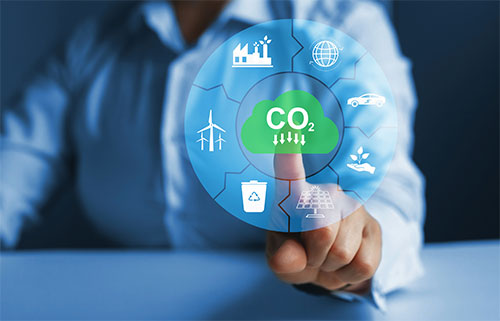



For IT solution providers, sustainability is no longer a buzzword, but a critical component of long-term success.

For IT solution providers, sustainability is no longer a buzzword, but a critical component of long-term success.
Businesses recognize the importance of reducing their environmental footprint and actively seek innovative ways to meet their sustainability goals. One such approach is adopting integrated solutions, which can significantly streamline operations, minimize waste and promote eco-friendly practices.
There’s much at stake—and it’s only growing.
According to a survey of global businesses conducted by Forrester, the carbon footprint from IT systems around the world is growing massively.
“Between 2010 and 2018, data center capacity increased 26 times worldwide, while compute instances increased 6.5 times,” Forrester analysts wrote earlier this year. “Data center energy consumption in 2021 was 220–320 terawatt-hours (TWh), or around 0.9–1.3 percent of global final electricity demand, while data transmission networks consumed 260–340?TWh, or 1.1–1.4 percent of global electricity use. In 2019, the world generated 53.6 million metric tons of e-waste—everything from discarded mobile phones to laptops, monitors, devices and IT hardware.”
Integrated solutions combine various technologies and processes to create a cohesive system that optimizes efficiency and reduces environmental impact. These solutions can range from energy management systems to waste reduction strategies, all designed to work in harmony to maintain uptime and help achieve sustainability goals.
A prime example of a company providing such solutions is Schneider Electric with its EcoCare membership service program. Specfically, EcoCare for Single Phase Uninterruptible Power Supplies (UPS) membership is a next-generation service plan for remote monitoring and dispatch with additional features that helps businesses increase uptime and optimize overall maintenance activities, while reducing carbon footprint.
EcoCare for Single-Phase UPS membership includes support to operations, replacement parts, 24/7 monitoring and alarming, trainings, and an EcoConsult Audit to obtain UPS fleet details, age and health.
It offers proper disposal and recycling of old equipment to provide a more holistic approach to sustainability, integrating various aspects of energy management, from monitoring and control to optimization and reporting. Furthermore, EcoCare's waste reduction strategies help businesses minimize waste output, contributing to a circular economy.
Moreover, EcoCare's reporting capabilities allow businesses to track their progress toward sustainability goals, providing transparency and accountability. This feature is key in today's business environment where consumers, investors and regulators increasingly demand evidence of sustainable practices.
The journey toward sustainability may be challenging, but partners can help businesses can make a significant difference with the right tools and strategies.